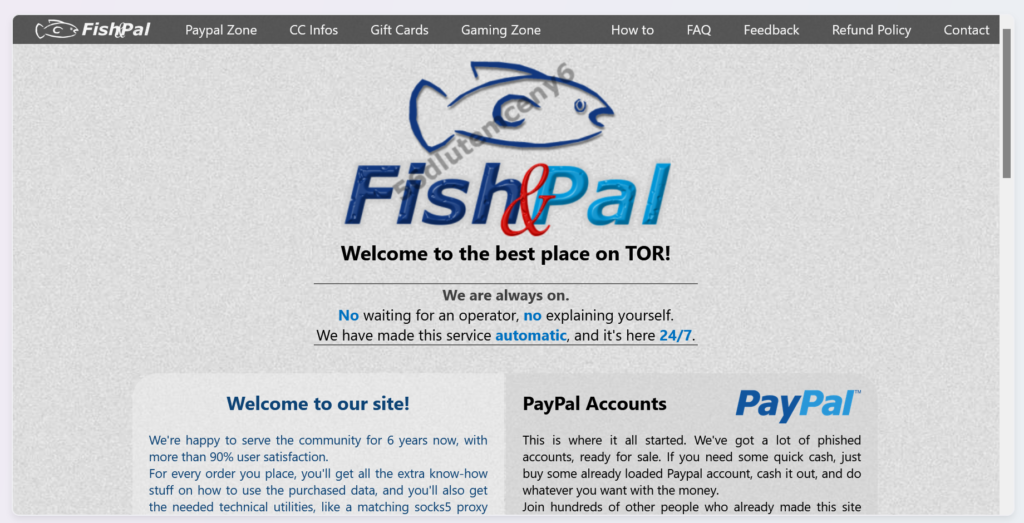Table of Contents
ToggleFish and Pal – TOR Scam Report (1)
Onion Link: http://56dlutemceny6ncaxolpn6lety2cqfz5fd64nx4ohevj4a7ricixwzad.onion/
Scam Report Date: 2024/07/25
Client Scam Report Breakdown
Original Report Summary:
The scam report in question is succinct yet troubling: “[Sent BTC for access and got zero access.]” This brief statement encapsulates a scenario where a client has transferred Bitcoin (BTC) to a third party in exchange for a promised service or product, only to receive nothing in return. The implications are significant, as this kind of scam can result in financial loss and damage to the victim’s trust in digital transactions.
Defining Terminology and Terms
To better understand the report, it’s crucial to define the key terms involved. Bitcoin (BTC) is a type of cryptocurrency, which is a digital or virtual form of currency that uses cryptography for security. Bitcoin is decentralized, meaning it operates without a central bank or single administrator. Transactions are verified by network nodes through cryptography and recorded in a public ledger called a blockchain.
Access, in this context, typically refers to obtaining entry to a digital service, product, or platform. This could involve anything from accessing a website, downloading software, or receiving digital goods such as e-books, courses, or media files. The term zero access indicates that the client received none of these promised benefits after making the Bitcoin payment. This suggests a classic case of a scam, which is a fraudulent scheme performed by a dishonest individual, group, or company in an attempt to obtain money or something else of value.
Analysis and Implications
The phrase “Sent BTC for access and got zero access” highlights a common scam in the realm of cryptocurrencies. The decentralized and often anonymous nature of Bitcoin transactions makes them appealing to scammers, as it’s challenging to trace and recover funds once a transaction is completed. This type of scam preys on individuals’ trust and their expectation of legitimate transactions.
This scam scenario underscores the importance of due diligence and caution when dealing with cryptocurrency transactions. Users should verify the legitimacy of the service or product provider and look for reviews or feedback from other users. Moreover, using escrow services, which hold the Bitcoin until the agreed-upon service or product is delivered, can provide an additional layer of security.
In conclusion, the client’s report of sending Bitcoin for access and receiving nothing in return serves as a stark reminder of the risks associated with cryptocurrency transactions. Understanding the terms and mechanisms involved can help potential victims recognize and avoid such scams, ultimately protecting their financial interests and maintaining trust in digital currencies.







